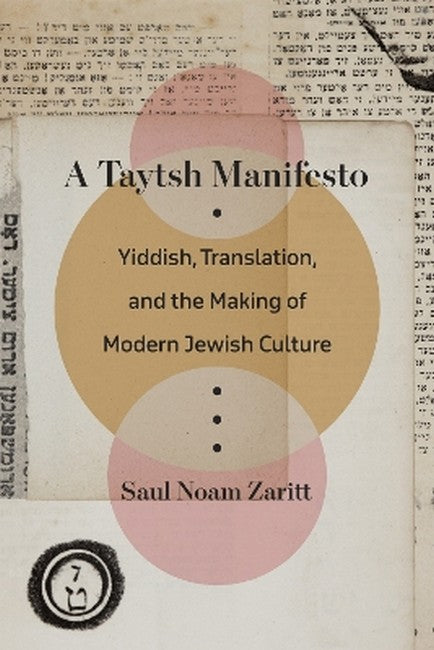Saul Noam Zaritt is Associate Professor of Yiddish literature at Harvard University. He is the author of Jewish American Writing and World Literature: Maybe to Millions, Maybe to Nobody (Oxford, 2020).
Request Academic Copy
Please copy the ISBN for submitting review copy form
Description
Note on Transliteration vii A taytsh Manifesto- ?????, ?? ?????????? viii Introduction: A Taytsh Paradigm 1 1 Yiddish Trash: Shund and the Politics of Translation 31 2 Yiddish Ghosts: The Monologue and the Story of Yiddish Literature 76 3 Yiddish Vulgarity: Translational Afterlives and Vernacular Discomfort 116 Epilogue: From Taytsh to Jew Theory 145 Acknowledgments 161 Notes 165 Works Cited 207 Index 227
This innovative work makes a positive contribution. . . The readable text has the feeling of an ever bubbling river whose waters run deep. Highly recommended.-- "Choice Reviews" A Taytsh Manifesto is a fascinating interrogation of literary genealogies as well as a provocative call to new ways of reading Jewish culture. Zaritt's taytsh reading is dangerous, pushing against the safety of well-established borders between vulgar and respectable, high culture and shund, vernacular and post-vernacular, Jewish and European or American. A Taytsh Manifesto is a bundle of dynamite shoved underneath the foundational mythologies of modern Yiddish culture and the most exciting, thought provoking book about the present and future of Yiddish in years.---Rokhl Kafrissen, author of A Brokhe / A Blessing This provocative book highlights the transnational role of Yiddish over the past hundred years. By emphasizing Yiddish's translational qualities, Zaritt powerfully reimagines the language outside the terms of ethnonational canon-formation.---Amelia Glaser, University of California, San Diego

